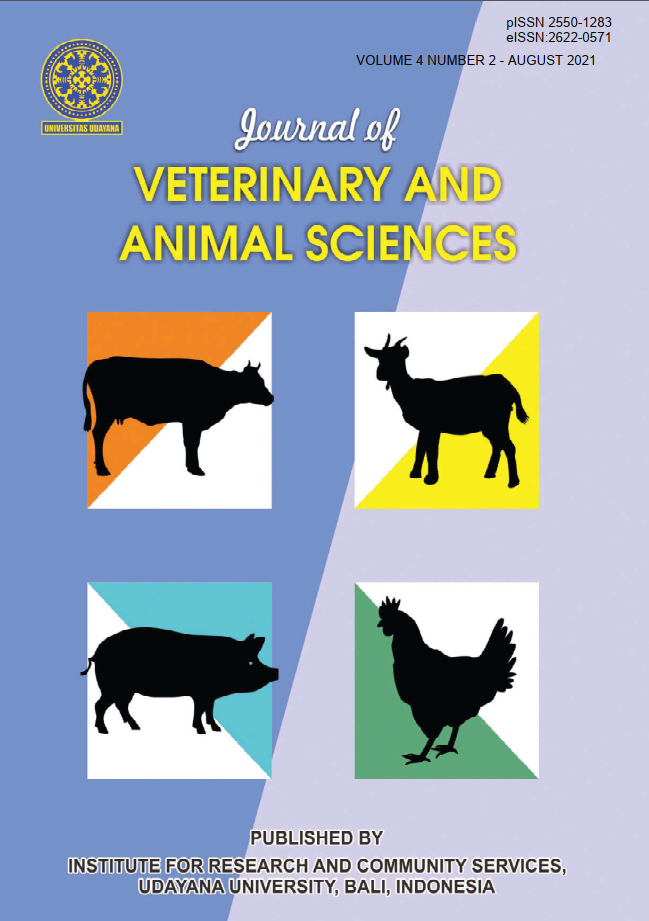Efficacy of Polyherbal Oil Against Gastrointestinal Nematode in Kintamani Dogs
Abstract
Gastrointestinal helminth parasites in animals can be zoonotic-parasitic. This study aims to determine the efficacy of polyherbal oil formulations against intestinal worm parasites of Kintamani dogs. This study used 24 Kintamani Dogs aged 3-6 months which were kept by releasing them into the wild. The anthelmintic potency of polyherbal oil formulations was determined by measuring Eggs Per Gram of feces (EPG), using the Modified Stoll Dilution method before and seven days after treatment. P0 as control was given a placebo, while groups P1, P2, and P3 were given Polyherbal oil at doses of 300, 600, and 900 mg/kg body weight for three consecutive days. The results showed that there was a decrease in the EPG value sequentially P0, P1, P2, and P3 which was -4%, 23.1%, 66.7%, and 81.3%. Based on the identification of worm eggs, it was shown that the efficacy of polyherbal oil against Toxocara canis decreased EPG at P1, P2, and P3 by 26.09%, 73.33%, and 86.08%. Against Ancylostomata spp respectively at P1, P2 and P3 caused a decrease in EPG of 17.39%, 52.63%, and 72.0%. Against Strongyl spp worms respectively at P1, P2 and P3 caused a decrease in EPG by 16.67%, 58.82%, and 73.68%. Statistical analysis showed that polyherbal oil had a significant effect (P<0.05) on the decrease in EPG. We can conclude that the polyherbal oil formulation has vermicidal efficacy against intestinal worm parasites in Kintamani dog puppies.











